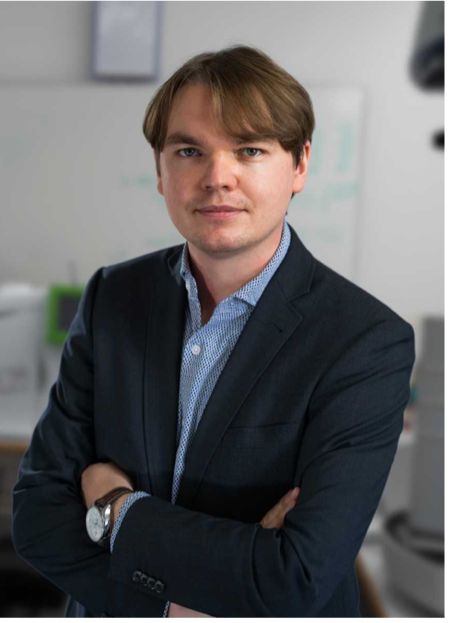The Winter In-Person Organic Symposium (WIPOS; http://wipos.org) is a premier annual event that gathers academic and industrial chemists from around the world to exchange ideas, present cutting-edge research, and build collaborations in the dynamic field of organic chemistry. Generously sponsored by the SynthX Center of Excellence, WIPOS serves as a vibrant platform for fostering innovation and connecting the global organic chemistry community.
|
|
2024 Winner - Dmitry Katayev, Ph.D.This year, we are delighted to announce Dr. Dmitry Katayev, Tenure Track Assistant Professor of Organic Chemistry at the University of Bern, as the winner of the 2024 SynthX-WIPOS Emerging Investigator Award. Dr. Katayev captivated the audience during the Young & Emerging Investigators’ Session on Day 2 of the Symposium with his lecture, Recent Innovations in Catalytic Nitration, highlighting his groundbreaking contributions to the field. Dr. Katayev obtained his MSc in Chemistry and Chemical Engineering in 2008 from the D. I. Mendeleev University of Technology, Moscow, Russia. He received his doctorate degree the University of Geneva (Switzerland) under the guidance of Prof. E. P. Kündig. He joined the research group of Prof. L. J. Gooßen at TU Kaiserslautern (Germany) as a postdoctoral researcher after receiving fellowship from the Swiss National Science Foundation (SNSF). In 2015, he joined the group of Prof. A. Togni at ETH Zürich (Switzerland) under SNSF return fellowship. He was later awarded the SNSF Ambizione grant and the Holcim Stiftung, which allowed him to launch his independent research at ETH Zürich in mid of 2017. As a recipient of the SNSF Eccellenza Professorial Grant, he joined the Department of Chemistry of the University of Fribourg as an Assistant Professor in early 2021. Shortly after, in October 2022, he joined the University of Bern (UNIBE) as an Assistant Professor with Tenure Track in Organic Chemistry. The central research theme of the Katayev’s group is focused on the development of innovative, robust, and catalytic strategies mediated by light, electricity, and mechanical energy, to streamline functional group incorporation into organic molecules in chemo-, regio-, and stereoselective as well as in atom-economic fashion. His group is also involved in methodology development through the exploration of a chemical space of small functional radicals and functional ionic species, which they efficiently liberate from readily available and/or rationally designed organic & inorganic functional group transfer reagents. The fundamental understanding of these catalytic radical- and ionic-driven processes to form novel chemical bonds plays a key role in molecular architecture. Therefore, the members of the group are also deeply engaged in detailed mechanistic studies using various physical-organic chemistry tools and density functional analysis. |

